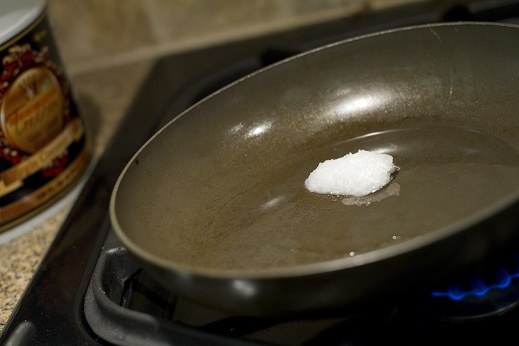
Use coconut oil in your cooking for Candida and yeast infections.
by Brian Shilhavy
For the past 20 years I have been affected by a chronic illness which creates a susceptibility to opportunistic imbalances like candida. It’s been 5 years that I have really been struggling with this (though the imbalance was established long before that). I read that taking Tropical Traditions Virgin Coconut Oil (TTVCO) could help with a candida imbalance and it really has. Of course, I did experience the dread die-off when I began the TT Virgin Coconut Oil (Feb ’04), which is not pleasant, but I know of nothing that works to balance this situation without creating a die-off. I began using the coconut oil at 1 tsp the first day and increased by 1 tsp each day until I was taking 1 tbls with each meal (3x/day). I have also used the coconut oil to make suppositories with essential oils. This, too, has been very helpful. In addition, I am using well chosen super-strain probiotics, enzymes, and nearly impeccable eating habits. Subduing a candida overgrowth can be very costly. TT Virgin Coconut Oil is one of the more affordable tools I’ve come across and it’s a great addition to my curry recipes and the morning oatmeal (with cardomon, cinnamon and coriander). If it can make the difference for me that it does now, I imagine that had I found this 5, 10 years ago the candida would never have gotten so out of hand. I recommend to anyone who is dealing with candida overgrowth that they read about this product and seriously consider employing it. Elizabeth – Sacramento
Candida albicans is yeast (or fungus) that normally inhabits our digestive system. In healthy people, candida does little harm because it’s kept in check by beneficial microorganisms, or probiotics. These “good” bacteria, however, can be easily destroyed by antibiotics, prescription medications, birth control pills, poor diet and daily stress, allowing Candida yeast to grow out of control and produce infections. Thought to affect more than 40 million Americans, Candida can cause uncomfortable symptoms such as vaginitis, weight retention, bowel disorders, ear and sinus irritation, intense itching, canker sores and ringworm.
Yeast-connected health problems occur in people of all ages and both sexes. However, women are more apt to be affected. Yeasts are especially apt to play a role in causing your health problems if you:
1. Feel bad “all over,” yet the cause can’t be identified and treatment of many kinds hasn’t helped.
2. Have taken prolonged courses of broad-spectrum antibiotic drugs, including the tetracyclines (Sumycin®, Panmycin®, Vibramycin®, Minocin®, etc.), ampicillin, amoxicillin, the cephalosporins (Keflex®, Ceclor®, etc.), and sulfonamide drugs, including Septra® and Bactrim®.
3. Have consumed diets containing a lot of yeast and sugar.
4. Crave sweets, breads or alcoholic beverages.
5. Notice that sweets make your symptoms worse or give you a “pick-up,” followed by a “let-down.”
6. Have symptoms of hypoglycemia.
7. Have taken birth control pills, prednisone, Decadron® or other corticosteroid drugs.
8. Have had multiple pregnancies.
9. Have been troubled by recurrent problems related to your reproductive organs, including abdominal pain, vaginal infection or discomfort, premenstrual tension, menstrual irregularities, prostatitis or impotence.
10. Are bothered by persistent or recurrent symptoms involving your digestive and nervous systems.
11. Have been bothered by persistent or recurrent athlete’s foot, fungous infection of the nails or “jock itch.”
12. Feel bad on damp days or in moldy places.
13. Are made ill when exposed to perfumes, tobacco smoke and other chemicals.1
Prolonged antibiotic use is believed to be the most important factor in the development of chronic candidiasis. Antibiotics suppress the immune system and the normal intestinal bacteria that prevent yeast overgrowth, strongly promoting the proliferation of candida. Systemic candidiasis is when candida spreads throughout the body, outside just the digestive tract, and it can be life-threatening.
Getting rid of candida and restoring the proper balance of healthy flora within one’s digestive system is no easy task. It takes a multifaceted approach to kill the yeast, promote the healthy microorganisms, and watching ones diet to prevent the yeast from feeding on excessive sugar. The medium chain fatty acids in coconut oil are effective in killing off the yeast, but if this happens too quickly it can cause a “die-off” effect that is referred to as a Herxheimer reaction, which is the result of the rapid killing of microorganisms and absorption of large quantities of yeast toxins, cell particles, and antigens. Your symptoms may get worse before they improve. Tom’s story illustrates this:
I have only recently discovered coconut oil and want to relate how it caused a severe Herxheimer reaction. I’ve been battling a systemic candida yeast infection for over ten years. I have the mutated (fungal) stage and it’s the toughest thing I’ve ever had to deal with. I recently read research reports out of Harvard and the University of Tennessee that this can be deadly and there are no phamaceuticals for it that are effective. Candida yeast can overgrow in the gut under the right conditions until it mutates and becomes an invading pathogen, moves out of the gut and grows in mass in any part of the body. When it affects a vital organ, then it can be deadly. I’ve tried everything from conventional drugs to all the natural remedies including caprylic acid but have never experienced a die off reaction as I did when I took the coconut oil and aerobic oxygen for about one week. I have subcutaneous masses on the scalp, face, buttocks, arms, and probably internally, that I can’t see. I applied the coconut [oil] heavily and would melt a large hunk in my mouth all during the day. My skin is starting to look better and I know from the reaction that it killed off a lot of candida. The Herxheimer reaction is a welcome sign that you are doing something right. In cases where people are suffering with a chronic problem there may be a quick and somewhat adverse reaction. The “die-off effect,” or Herxheimer Reaction, refers to symptoms generated by a detoxification process. As the body begins to deal with dead microbes, one may experience a vareity of detox symptoms. I am now recovering from the reaction and will start another round of coconut oil. [This oil] is something I will not be without for the rest of my life. Brian, thanks for all your efforts in bringing this to market. Tom (The Coconut Diet Forums)
Research on Coconut Oil and Candida Yeast
There is good research now that shows the medium chain fatty acids in coconut oil kill candida yeast. Caprylic acid is one of the fatty acids found in coconut oil that has been used for quite some time in fighting candida yeast infections. William Crook, M.D., the author of The Yeast Connection and the questionnaire above, reports that many physicians have used caprylic acid successfully for yeast infections and that it works especially well for those patients who have adverse reactions to antifungal drugs.
Besides caprylic acid, two other medium chain fatty acids found in coconut oil have been found to kill Candida albicans. A study done at the University of Iceland showed “capric acid, a 10-carbon saturated fatty acid, causes the fastest and most effective killing of all three strains of Candida albicans tested, leaving the cytoplasm disorganized and shrunken because of a disrupted or disintegrated plasma membrane. Lauric acid, a 12-carbon saturated fatty acid, was the most active at lower concentrations and after a longer incubation time.”(2) This study shows great promise that all the medium chain fatty acids in coconut oil work together to kill Candida albicans. A study done in Japan in 2012 found that four of the medium chain fatty acids found in coconut oil, caproic acid, caprylic acid, capric acid and lauric acid, were effective in fighting oral candidiasis.(3)
A study was done in Nigeria in 2007, in the Department of Medical Microbiology & Parasitology, University College Hospital, Ibadan, Nigeria, that specifically examined coconut oil’s role in combating candida, since common antifungal drugs were becoming “antimicrobial resistant.” The purpose of their study:
“The emergence of antimicrobial resistance, coupled with the availability of fewer antifungal agents with fungicidal actions, prompted this present study to characterize Candida species in our environment and determine the effectiveness of virgin coconut oil as an antifungal agent on these species.” Their conclusion: “It is noteworthy that coconut oil was active against species of Candida at 100% concentration compared to fluconazole. Coconut oil should be used in the treatment of fungal infections in view of emerging drug-resistant Candida species.”(4)
One important action of medium chain fatty acids killing candida yeast, is that the antimicrobial actions do not apparently affect beneficial bacteria, often referred to as “pro-biotics,” which are essential in overcoming candida infections. A study conducted at the University of Minnesota in 2010 showed that a monolaurin based gel (derived from lauric acid) did not affect Lactobacillus negatively, but significantly reduced Candida and G. vaginalis.(5)
I am a walking testimonial to the benefits of a low carbohydrate/ high fat diet with regard to Candida and cystitis. I used to purchase Monistat two or three packages at a time. Now I use lots of coconut oil for cooking and eat plenty of coconut products such as fresh coconut, coconut flakes, and coconut milk. Coconut contains capric/caprylic acid and lauric acid both proven to kill Candida while leaving healthy intestinal flora intact. I was taking a long-term, broad-spectrum antibiotic for chronic cystitis for over two years and now its been two years since I stopped refilling the prescription with no recurrence! By far the most remarkable transformation occurred when I started using coconut oil and simultaneously eliminated skim milk and all soy products from my diet. And I lost weight! – Laura (The Coconut Diet Forums.)
It is interesting that people who eat a lot of coconuts live in areas where yeast and fungi are extremely plentiful, yet they are rarely troubled by infections. Women in the Philippines who eat their traditional coconut-based diet rarely if ever get yeast infections. Eating coconut oil on a regular basis, as the Filipinos do, would help to keep candida yeast overgrowth at bay.
The Coconut Oil Diet Anti-Yeast Program
In addition to Virgin Coconut Oil, if you suspect that you have a candida yeast overgrowth, we strongly recommend you supplement your diet with strong probiotics to balance the flora in your intestinal tract and rebuild your immune system. Traditional fermented foods are one of the best additions you can make to your diet, while eliminating refined sugars and simple carbohydrates that the yeasts feed upon.
Fermented milk called “Kefir”, a yogurt-like drink, is one traditional food originating from the Caucasus region of Central Asia and Turkey. It is best to make this drink yourself from real Kefir grains, rather than purchasing ready-made Kefir drinks, or kits that only contain “starter cultures” without the actual self-propagating Kefir grains. The best non-commercial website on Kefir, with links on where to obtain real Kefir grains, is: http://users.chariot.net.au/~dna/kefirpage.html run by Dominic N. Anfiteatro in Australia.
Other great traditional fermented foods and beverages would include sauerkraut, kimchee, chutney, and kombucha. Make sure they are not pasteurized, which would kill all the beneficial microorganisms.
So to summarize the Coconut Oil Diet Anti-Yeast program:
1. Slowly work up to at least 3.5 tablespoons of Virgin Coconut Oil into one’s diet.
2. Add traditional fermented foods to one’s diet.
3. Eliminate sugars and simple carbohydrates (white breads, pasta, etc.) as much as possible from your diet.
I would like to share my story with coconut oil in hopes that others will also be able to benefit from the various wonders of this oil!! I have been taking the virgin coconut oil for over 6 weeks now, 3 tablespoons each day. Prior I was suffering from unstable energy levels, lethargy, low body temperature and Candida albicans. I noticed within just a few days dramatic increases in my mood, my energy, etc. I replaced all the hempseed oil and flax oil in my diet with the virgin coconut oil. I simply love cooking with it and the pleasant taste of it! To date I have marked many positive changes; my energy levels are now more stable and I do not tire easy, I’m feeling much more energized than before. My body temperature has risen from a low 97 degrees to now a mid 98 degrees everyday!! I used to get so cold very easy and do not experience this anymore. My hair has become so soft and manageable and my nails are growing at such a fast rate! Also my candida related symptoms have drastically lowered. I feel like a new person and without a doubt recommended coconut oil to anyone, even for those that are healthy! I’ve been telling all my friends and family about how wonderful the coconut oil is, I only wish that more people can experience this as well! To good health, Jennifer – Canada
References
1. William G. Crook, M.D., The Yeast Connection, Vintage Books, 1986
2. Gudmundur Bergsson, et. al., In Vitro Killing of Candida albicans by Fatty Acids and Monoglycerides, Antimicrobial Agents and Chemotherapy, November 2001, p. 3209-3212, Vol. 45, No. 11
3. Takahashi M, Inoue S, Hayama K, Ninomiya K, Abe S., Inhibition of Candida mycelia growth by a medium chain fatty acids, capric acid in vitoro and its therapeutic efficacy in murine oral candidiasis. Medical Mycology Journal 2012;53(4):255-61.
4. Ogbolu DO, Oni AA, Daini OA, Oloko AP., In vitro antimicrobial properties of coconut oil on Candida species in Ibadan, Nigeria. Journal of Medical Food, June 2007, 10(2):384-7.
5. Strandberg KL, Peterson ML, Lin YC, Pack MC, Chase DJ, Schlievert PM., Glycerol monolaurate inhibits Candida and Gardnerella vaginalis in vitro and in vivo but not Lactobacillus., Antimicrob Agents Chemother. 2010 Feb;54(2):597-601.
About the author: Unlike many people who write about coconut oil by simply reading about it, Brian Shilhavy actually lived in a coconut producing area of the Philippines for several years with his family, observing firsthand the differences between the diet and health of the younger generation and those of his wife’s parents’ generation still consuming a traditional diet. This led to years of studying Philippine nutrition and dietary patterns first hand while living in a rural farming community in the Philippines. Brian is the author of the best-selling book: Virgin Coconut Oil: How it has changed people’s lives and how it can change yours!
Read the Virgin Coconut Oil eBook on Your Mobile Device!




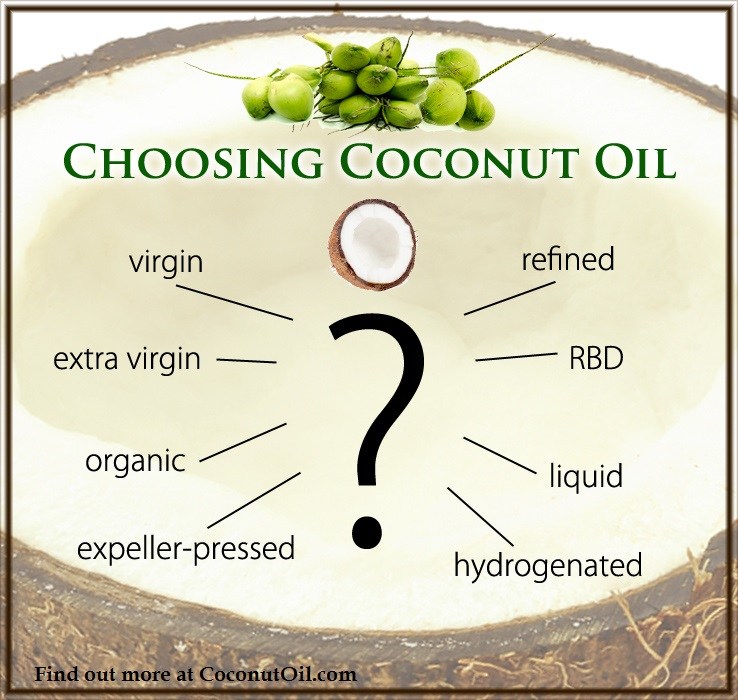

 HHS Secretary Kennedy Breaks His Promise: "War on Saturated Fat" Kept in Tact with New U.S. Dietary Guidelines
HHS Secretary Kennedy Breaks His Promise: "War on Saturated Fat" Kept in Tact with New U.S. Dietary Guidelines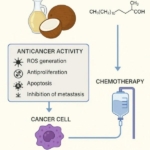 Research Continues to Show Virgin Coconut Oil's Effectiveness in Treating Cancer
Research Continues to Show Virgin Coconut Oil's Effectiveness in Treating Cancer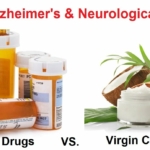 Coconut Oil Continues to Benefit Alzheimer's Patients over Drugs as Studies Continue for Neurological Benefits
Coconut Oil Continues to Benefit Alzheimer's Patients over Drugs as Studies Continue for Neurological Benefits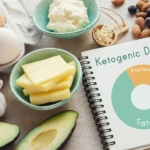 How the Simple High-Fat Low-Carb Ketogenic Diet Continues to Change People's Lives
How the Simple High-Fat Low-Carb Ketogenic Diet Continues to Change People's Lives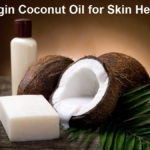 New Studies Continue to Show that Coconut Oil is the Best Oil for Treating Skin Conditions and Maintaining Healthy Skin and Teeth
New Studies Continue to Show that Coconut Oil is the Best Oil for Treating Skin Conditions and Maintaining Healthy Skin and Teeth